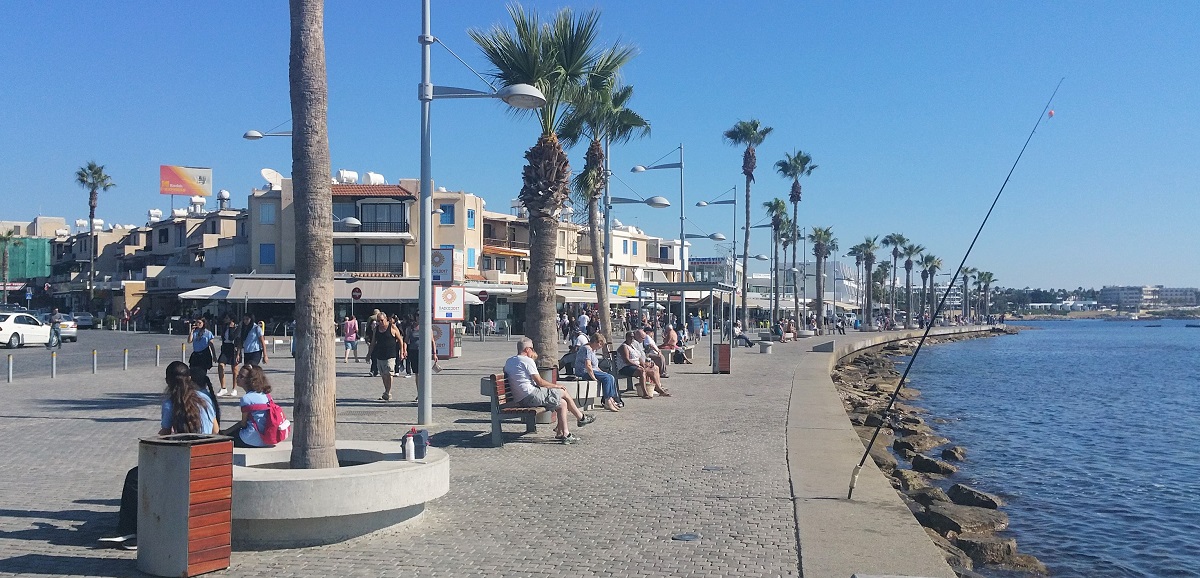UK pensioners eyeing a retirement home in Cyprus may have to rethink their plans, as changes proposed by the government on granting residence permits to non-EU nationals raise the bar for newcomer retirees by €130,000.
Amid a surge of demand from retirees from the UK, Israel and Germany, real estate stakeholders in coastal areas are worried the government’s plans will prematurely burst a mini-boom in the sector.
The Interior Ministry confirmed to the Financial Mirror that the cabinet had approved amendments to the regulations governing how immigration permits are granted to foreign nationals.
A bill on the changes has already been prepared, cross-checked by the legal services, and submitted to parliament.
While the ministry declined to disclose details of the changes, arguing they are subject to amendments by MPs, sources argue the news is not good for expats wanting to live out their retirement in Cyprus.
Although admittedly making things easier for self-employed and skilled workers from third countries, retirees will need almost double the money to invest in a home and four times more cash in the bank.
According to the Financial Mirror’s information from Parliamentary sources, the changes will see those intending to reside in the Republic pay tens of thousands more.
As things stand, UK expats and other retirees wanting to make the island their home must obtain a suitable privately-owned dwelling in the Republic for at least €150,000.
Financial Mirror sources confirm that authorities are promoting the minimum amount invested in housing property must be worth at least €250,000.
This means retirees will need another €100,000 from the get-go.
Furthermore, changes foresee that anyone who intends to reside in the Republic without exercising any employment or other economic activity must have an annual income of at least €40,000, plus €10,000 for each additional family member.
Currently, retirees only need an annual income of €10,000 to be accepted as candidates for a residence permit.
UK concern
“This could endanger the boom in demand we have seen in recent months for property in the coastal areas, especially Paphos,” said Esme Palas, Barrister at Law, Partner at Michael Kyprianou and Co LLC Paphos.
She told the Financial Mirror that since news broke over the government’s intentions to increase requirements for people intending to reside in Cyprus without exercising any economic activity, requests have flooded in from UK citizens.
“They are concerned, as many of these people rely on the sale of property they own back in the UK and their pension,” said Palas.
As she explained, the changes will exclude a large number of UK retirees, threatening the property market.
Real estate agents in Limassol and Paphos are reporting the highest demand from foreign buyers and Cypriots for homes since 2020 when the government ended the disgraced citizenship for investment scheme.
The boom is amid a global crisis, with the war in Ukraine raging and sanctions hitting Russian investors, who were the number one buyers for properties in Limassol and Paphos.
Palas said the influx in demand is powered mainly by UK expats looking for a retirement home, Israelis, and Germans looking to relocate.
“Sales in Paphos are flying. This is the most traffic we have seen in recent years, with our clientele growing rapidly as more foreigners are looking for a home on the island.
“This is the biggest movement we have seen in the local market since the end of the citizenship for investment scheme, coinciding with two years of inaction due to COVID restrictions.”
Palas said that stakeholders are recording a vivid interest from UK retirees for new properties for the first time.
Indeed, Paphos has seen sales to foreign nationals rise by 113% in the first five months, compared to last year, as 746 sales documents were submitted with the Land Registry.
Of the 746 properties sold, 415 were bought by non-EU nationals, and non-EU citizens bought 186 in the first five months of 2021.
Although the Interior Ministry refuses to confirm the paper’s information on the proposed changes officially, the philosophy behind amendments is to align the residence scheme with “realities on the ground”.
Eleni Averkiou, a Danos/BNPRE Group property consultant, said the changes, as reported, may not necessarily be a bad development for the real estate sector.
“Taking as granted that the government does intend to push up the minimum value of a dwelling needed to be purchased by a retiree, this could prove to be in favour of the real estate and construction industry,” said Averkiou.
The real estate consultant said that keeping the minimum for the purchase at a low €150,000 could discourage foreigners from looking for newer property.
“Bringing up the minimum, foreigners would be encouraged, in a manner, to seek out newer properties, boosting the local housing construction industry.”
She further explained that encouraging the construction of newer homes would also mean more supply when there is a high demand from Cypriots.
“This could bring about some sort of stability in the sector in an era where everything is fluid, due to the war in Ukraine, possible outbreaks of new conflicts in other regions of the world and of course inflation.”










